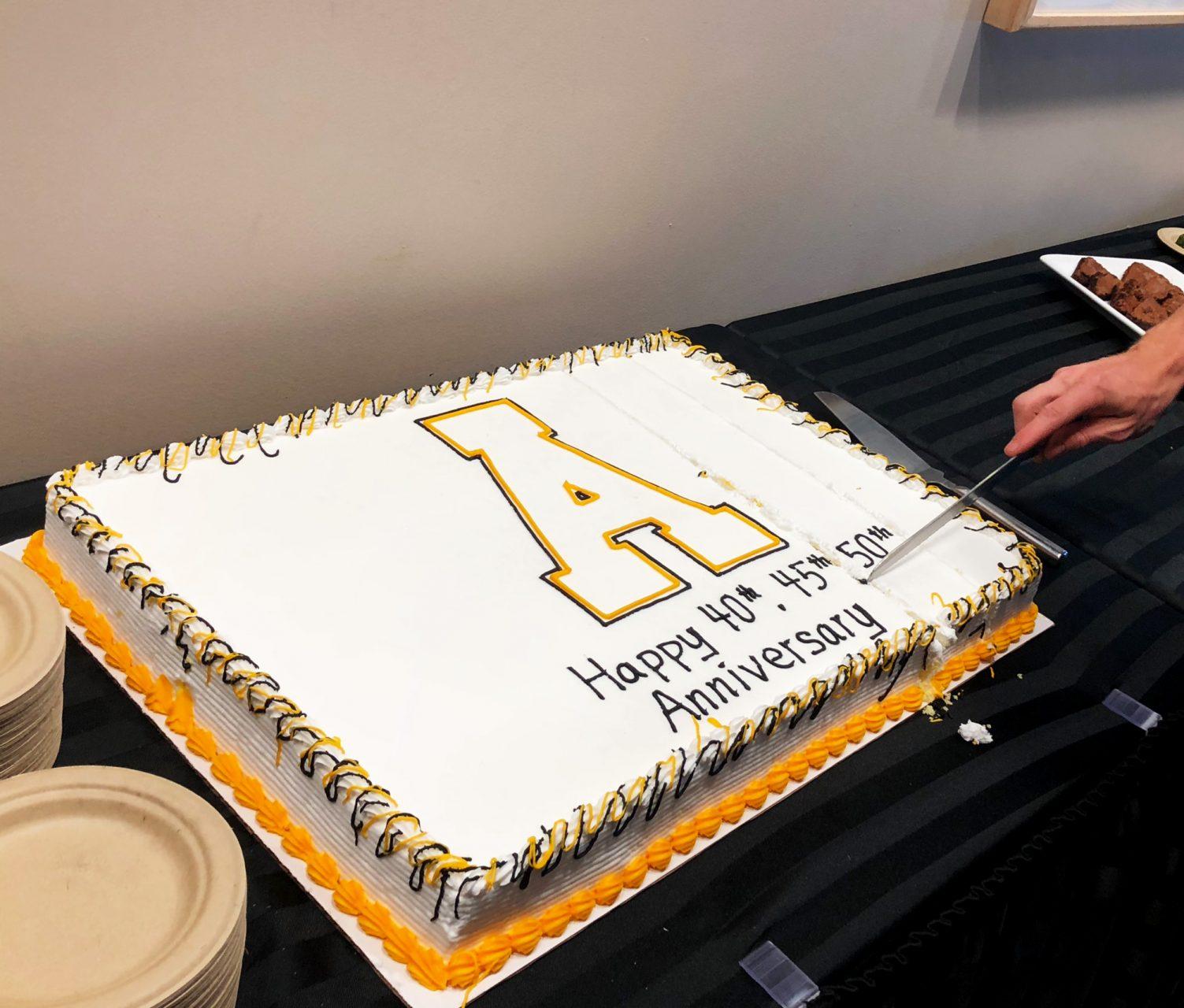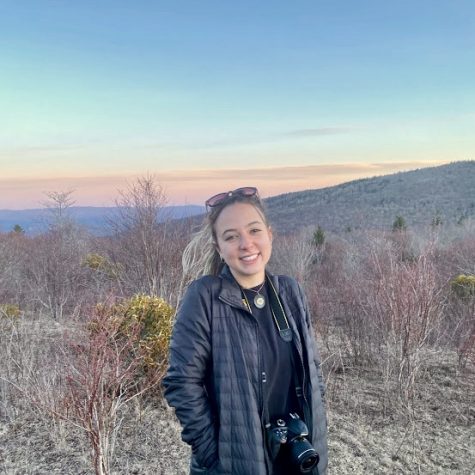On Friday, App State hosted a panel and cake-cutting ceremony in honor of the 40th, 45th, and 50th anniversaries of the Center for Appalachian Studies, the Appalachian Journal, and the W.L. Eury Appalachian Collection at Belk Library.
The panel of three members included Fred Hay, Jerry Williamson, and Patricia Beaver.
The panel began with a talk from Hay, current director of the W.L. Eury Appalachian Collection, discussing that collection.
“The collection is the largest collection of its kind. It has more material about Appalachia than anywhere,” Hay said.
The collection has gained global recognition, as it has increased from 5,000 books to 54,000, Hay said.
“People come from all over the world to use the collection here. It’s simply the best collection on Appalachia,” Hay said.
With such a large quantity of books, however, there are some challenges that Hay is facing.
“There’s a lot of competition for funding,” Hay said. “And to get a sufficient amount of money to keep growing at the level we’ve grown is a fight every year.”
Despite that challenge, Hay said that his goal for the future is to continue to do the best work possible.
Williamson, founding editor of the Appalachian Journal, followed with a discussion about the Appalachian Journal.
“It is the premier publication that tries to take a scholarly, well-researched look at the region and all of its dimensions,” Williamson said. “The journal always published materials in a wide variety of academic fields.”
Williamson encountered a lot of controversy surrounding the many pieces he published throughout his 28 years as editor.
“I liked controversy; I pushed the envelope as much as I could,” Williamson said. “I think a magazine, if it has any claim to reality, has got to challenge the status quo.”
The Appalachian Journal was a way of writing essays on a variety of disciplines, Williamson said.
The final speaker of the panel was Patricia Beaver, former director of the Center for Appalachian Studies, with a discussion of the Center for Appalachian Studies.
The Center for Appalachian Studies led to the “creation of a Master of Arts degree in Appalachian Studies, which has attracted thousands of students,” Beaver said.
Beaver also said that the center helped to dispel myths and stereotypes of the region.
The Appalachian Studies program began in 1978, with 22 undergraduate students receiving either a major or minor.
The Center for Appalachian Studies, the Appalachian Journal, and the W.L. Eury Appalachian Collection were all due largely in part to Cratis Williams.
“One thing is important that each of us said is Cratis Williams. None of us, our programs, would have been here without him,” Hay said.
Cratis Williams grew up in Lawrence County, Kentucky, but moved to the Appalachian area in 1942, where he served as a member of the App State faculty as an English professor, director of the graduate school, and acting chancellor, according to NCpedia.
The W.L. Eury Collection was founded thanks to Williams’ push for a separate section of books specifically about Appalachia.
Cratis Williams was also responsible for the creation of the Center for Appalachian Studies, Beaver said.
Williams’ passion for the Appalachian area began at a young age, when he was, “shamed for using mountain dialect,” Sophie Williams, Cratis Williams’ daughter, said.
“He had a teacher that encouraged him to collect ballads, and decided that his culture was worth preserving,” Sophie Williams said. “He saw it as his mission to educate mountain children.”
Story by Cameron Stuart
Photo by Cameron Stuart
Featured photo caption: The cake was cut to celebrate the 40th, 45th, and 50th anniversaries of the Center for Appalachian Studies, the Appalachian Journal, and the W.L. Eury Appalachian Collection at Belk Library.


